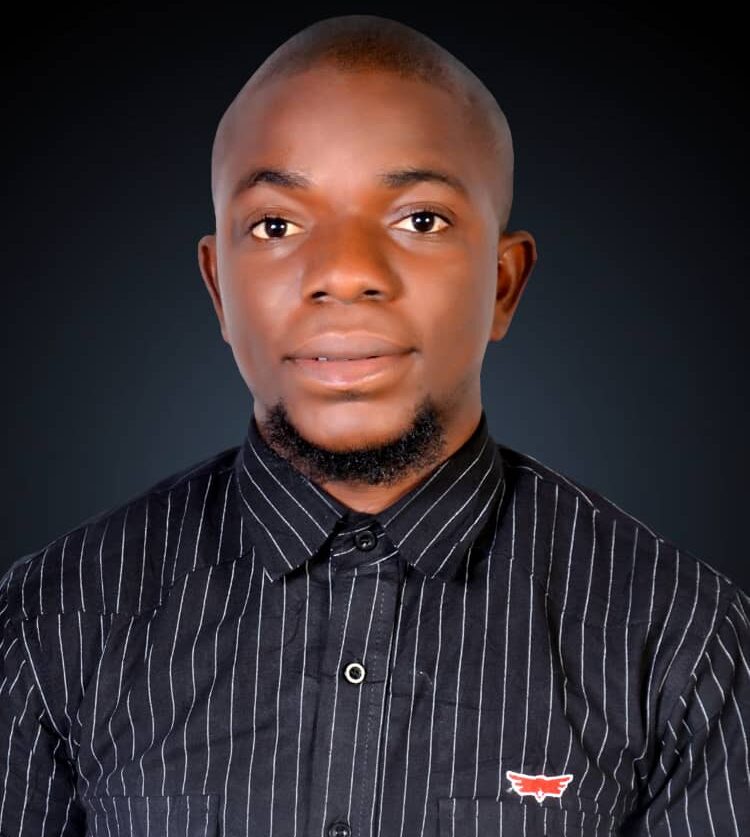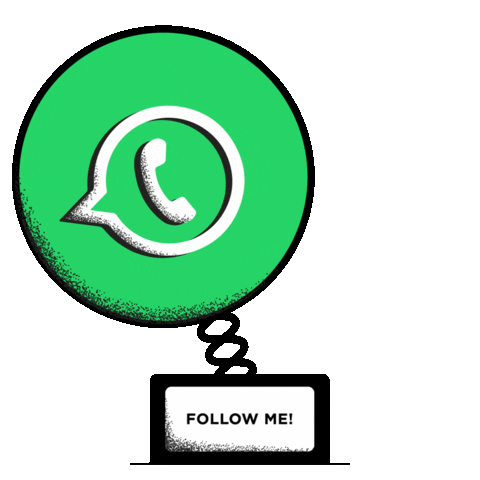
Youthful looks, a calm disposition, eyes that reflect a deep sense of passion in helping the less privileged, issues reeled out articulately with regards to the state of Eye health Care in the country. Meet Optometrist Dr. Edward Chigaemezu, a beacon of hope in this era.
Tell us briefly about yourself
My name is Dr. Edward Chigaemezu, a native of Mgbede in Egbema Onelga, Rivers state. I’m from a family of eight; the fourth child and second son of Mr and Mrs Ezbuike Monday. I attended Community primary school Mgbede (UBE) and then went on to Community Secondary school, also in Mgbede. I later proceeded to Madonna University, where I graduated in Optometry. I interned at the Rivers State University Teaching Hospital Portharcourt, formally known as Braitwait Memorial Specialist Hospital (BMSH). I’ve practiced Optometry for two years running and it has been an interesting professional journey. I’m also an entrepreneur with a budding online shopping business. Many people are going through difficult times and In dire need of help, so in my little way through my social media page, I lend a helping hand to them alongside discussing life’s pertinent issues.
What’s the difference between an Optometrist and Opthamologist?
In lay man’s terms, an optometrist is a primary eye care health professional while an opthalmologist is an eye surgeon. An optometrist provides comprehensive eye and vision care, which includes refraction and dispensing, detection or diagnosis and management of eye diseases and the rehabilitation of conditions of the visual system. An ophthalmologist on the otherhand, is an eye consultant, who In addition to possessing a medical degree, undertakes specialized training in eye care (including surgical care) and is certified to be sufficiently trained. He or she provides medical treatment for eye diseases or conditions and in particular, surgery.
What area of optometry are you passionate about and in your view, would you consider it as a lucrative health line in Nigeria?
I’m intrested in public health optometry because public health cuts across all areas of the health line. I’m passionate about touching lives especially those in areas were the standard of living is low. Many communities are struggling to access good eye care services and rely on Government owned hospitals for help. Where such can’t be accessed, they resort to traditional ways which worsens the problem. I see helping people as a call to service to my fatherland. I also want to take up lecturing someday to impart the knowledge and experience garnered over the years to students in the health line. Naturally, it should be a lucrative job like in other climes but in Nigeria various challenges seem to downplay this potentially financially rewarding profession and stiffle more job oportunities in the field.
[ALSO READ] National security adviser maintains FG’s hard posture against bandits, insurgents
What are the challenges faced by optometrists in the country?
Firstly, we have an inadequate number of optometrists meant to cater for the Nigerian populace. Optometrist-to-population ratio in Nigeria is about 1:45,000 for a developing country with a burden of eye diseases prevalent here. Inability to have access to them further creates a communication lapse as the proper eye care orientation which would have been passed across to them is negated. This Spurs people to look for alternative remedy via traditional means of eye treatment, which only complicates issues rather than solving them. I believe if we have more optometrists, we can reach more people and educate them effectively about the eye and more, put a stop to over the counter purchase of unprescribed eye medication for instance eye drops , the abuse of which results in corneal opacity or even corneal ulcer, that can lead to blindness if not properly managed.
Secondly, there’s the partial recognition of optometrists as public health professionals. Globally, optometrists have been reckoned as the major provider of vision correction. For instance, when you visit a clinic and complain about the inability to see things that are far or near or can’t read small letters, an optometrist runs a test and gives you a prescribed spectacle which helps you to see better. However, in Nigeria, the services of the optometrist, as a public health professional isn’t wholly recognized and fully integrated into the public health lines reaching the underserved. There’s the recognition of uncorrected refractive errors as a public health concern by the World health organization (WHO), and the creation of Refractive error working group(REWG) as part of the vision 2020 activities to help focus attention to this important facet of International eye care. What stops the Nigerian government from integrating us fully into the local public health care arena ?
Thirdly, Optometry is regarded as a relatively new entrant into the health care sector so there seems to be somewhat of a resistance from others in our quest to prove our relevance in the public health space. Then of course, there’s the low or nil public awareness of the need for adequate eye care, which propells a recourse to unorthodox or personal trestment. A lot of these eye problems can be avoided if the Government at Federal and State levels leverage on our expertise.
Road accidents are usually associated with over speeding, drunkenness, worn out tyres, failed brakes, among others. Would you consider poor eyesight of the driver as a vital contributor to it?
Yes, poor eyesight of a driver can be a major contributing factor of road accidents and by driver I mean anyone at any point In time in control of the steering wheel. Now, functional vision and good visual perception are essential for driving safely which accounts for about 90% of the decision made behind the wheel; whether he wants to swerve on time to avoid a collision or hitting someone, overtake, stop abruptly, reverse, make a turn, slow down or increase speed. The ability to see road traffic signs, notice dash board indicators, anticipate and react to the actions of other road users quickly, can be affected by visual impairment. The misconceived notion of creating and utilizing strategies such as driving slowly, or driving on less busy roads can’t mitigate the shortcomings. It can be equated to sitting on a keg of gun powder and we know the consequences of such action.
For instance, if a driver can’t see at 6 meters up to 6/6 in snellen VA chart, how will he be able to clearly see the car ahead of him. He can decide to increase the speed unaware that a car is closer than he thinks, and by the time he realizes that, boom! an accident has occurred. In developed countries that place premium value on the lives of citizens, you aren’t permitted to drive if you can’t see at least 6/9 line of snellen VA chart, but in Nigeria, the reverse is the case
What’s the solution?
The Government needs to make undergoing a comprehensive eye test examination a mandatory pre-requisite to securing a driver’s license, in which he or she sees at,least 6/6 line of snellen visual acuity chart. They need to put in place systems to detect the illegal acts of cutting corners and sharp practices that would taint the process. Those who have visual issues can be corrected with spectacle lens to help them see 6/6 line.
How would you rate the level of awareness about eye health and vision among Nigerians?
It’s very poor because many people still use unorthodox treatment, traditional means, and other ways to handle and take care of their eyes rather than recourse to us. This isn’t surprising due to the low ebbed integration of optometrists in the public health space. Sadly, our potentials are not being adequately harrnessed, thus resulting in optometrists seeking solace in private practice or relocating to countries that place a premium value on what we bring to the table.
Are there personal habits that can be used to take care of the eyes?
Yes there are things you can do to keep your eyes healthy and ensure optimal visuals such as eating healthy, balanced diet. Your diet should include fruits and vegetables, especially deep yellow and green leafy vegetables. Eating fish high in omega-3 fatty acids, such as salmon, tuna, and halibut also helps. Maintain a healthy weight because being overweight or obese increases your risk of developing diabetes which puts you at a higher risk of getting diabetic retinopathy or glaucoma. Regular exercise can lower your risk of getting eye or vision diseases stemming from diabetes, high blood pressure, and high cholesterol. Also, exposure to intense sunlight can damage your eyes and raise your risk of getting cataracts and other age-related macular degeneration. You can protect your eyes by using sunglasses that typically block out 99 to 100 percent of both UV-A and UV-B radiation. I’m sure many will be surprised when I say this but smoking increases the risk of developing age-related eye diseases such as macular degeneration and cataracts and can damage the optic nerve. Of course it goes without saying that once you’re engaged in any activity that you perceive can cause eye injuries, then you must protect your eyes.
[ALSO READ] Malami’s reason for FG usurping £4.2m refund disdainful — League of Professionals
The unemployment rate as at second quarter of 2020 was 27.1% and estimated to reach 31.4% this year. How has this affected the securing of jobs and attendant brain drain by Optometrists?
Unemployment is a worrisome issue particularly in the light of the increase in the number of graduates yearly. It’s true that we are smaller in number but imagine a situation where Government employs one or two optometrists across the 776 local goverments, private practitioners, the town and wig and health research facilities open the doors wider for us? At least that takes care of a sizeable number. However, I still believe that as an optometrist, you can be independent and employ others through private practice. There are quite a number of people out there who need our services and I’m sure that by positioning ourselves properly, the jobs will seek us out.
The Covid- 19 pandemic and the protocols disrupted activities in all sectors. How has the new norm affected the Optometry business?
The break out of the covid-19 pandemic last year affected the optometry business. I recall being at the Rivers State University Teaching Hospital Portharcourt at that time. Due to strict adherence to social distancing safety protocols, the number of patients we attended to daily was drastically reduced. We resorted to booking patients on appointment basis, infact those with severe visual impairment and ocular problems that needed immediate intervention were not given maximum attention, not attended to or taken care of as was the norm. Those who were attended to were rescheduled to return.via appointment but the lockdown and imposed curfew forced some patients to resort to the traditional means of eye treatment because there was no way they could see an optometrist. This wasn’t peculiar to the public hospitals as private eye clinics were also affected by the lockdown. Probably, a few private eye clinics might have stayed in touch with their clients through phone calls, although, visual calling powered by the internet via zoom, skype and even whatsApp video call bridged the gap between technology driven optometrists and their patients. Sadly, many didn’t tap into that especially those in the public sector but I’m happy things are better now.
What are the solutions to the problems you have raised thus far?
I believe that Optometrists should be properly Integrated into the public health arena, more Universities should establish optometry schools on campus because the more optometry schools we have, the higher the chances of producing professionals who will not only elighten the masses about eye care, visual needs, but diagonise problems and proffer solutions. Also, the creation of a sustainable frame work that will for starters, maintain an optometrist to cater for no more than 20,000 Nigerians resident in every location across the country. This will surely be a major boost to the effort of preventing blindness through the provision of the needed eye care interventions at proximal locations to all persons in the country at all times.
Are there any pet projects in the pipeline?
Oh definitely. As I said earlier, I’m passionate about helping people and in this regard I’m planning with my team to carry out a community based service entailing free eye check up and eye diagnosis for the less privileged while adhering to the social distancing rules. I intend doing this once a quarter for starters which will culminate into having an eye foundation and eye clinic approved and licensed by the appropriate authorities. I also plan on writing a book as well but I won’t want to give out much details about it. So many things to do, but I’ll take it one step at a time
How do you unwind during your free time?
I play football with my friends, read novels, play chess or if I’m in the music mood, I play the guitar
What’s your advice to those who desire to tow the optometrist path?
Be focused, pay attention to details, embrace the I can do it spirit, study assiduously and make clinicals of paramount importance in your career journey. Like some professions that are highly rated, Optometry gifts you the opportunity to partake of the untapped harvest that beckons, so seize it.
Vanguard News Nigeria
The post Edward Chigaemezu: Optometrist proffers solutions to eye problems befuddling citizens appeared first on Vanguard News.








![[Video] Speaking In Tongues - Oyereyi](https://1.bp.blogspot.com/-_AsYnQoWjCs/YTy9dQfbceI/AAAAAAAAQyM/bUPsq9lMM_UHqmspyN2qCp4x5hAc2iUywCLcBGAsYHQ/w680/Screenshot_20210911-152304%257E2.png)









Advertise your business here at cheap rate and get large audience to your market. Call/Msg Teemikemedia: 07060733664 to get started.